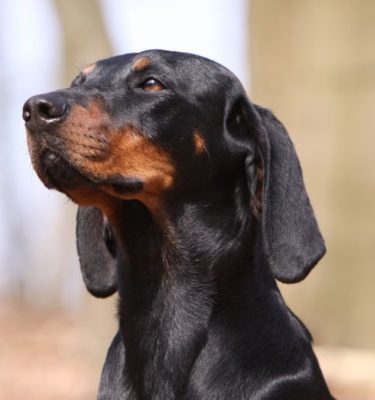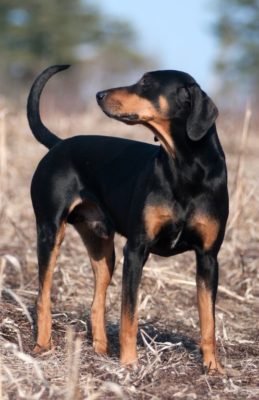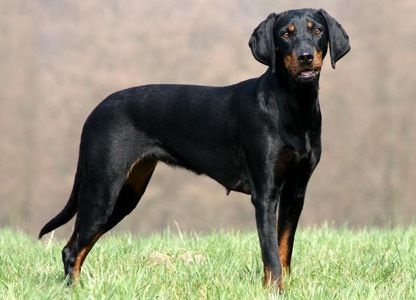Austrian Black and Tan Hound
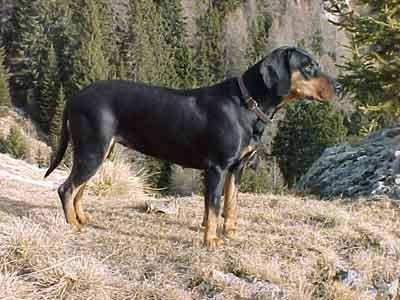
Given that the Austrian Black and Tan Hound is mainly distributed in its territory, there is little information about its behavior. Owners of the breed emphasize that there is a hunting instinct raging in the Brandlbracke’s blood. Therefore, special care should be taken with other pets.
Table of Contents
Breed Information
| Another Name | Brandlbracke, Vieräugl |
| Origin | Austria |
| Height | Males 50-56 cm Females 48-54 cm |
| Weight | 13-23 kg |
| Fur | Smooth |
| Color | Black and tan |
| Lifespan | 15 years |
| FCI Classification | Scent hounds and related breeds |
| Group | Hunting dogs |
| Price | $350-850 |
Breed Photos
Origin History
The history of the Austrian Black and Tan Hound has its origins in Austrian areas. The breed is attributed to a Celtic ancestor, but there is no exact confirmation of this fact. Outside of Austria, the dog was not popular. Only very wealthy people could have such a breed.
In the mountainous areas, the Brandlbracke was in particular demand from the locals. The dog shows itself best in hunting even today. Thanks to its endurance and vigor, the Austrian Black and Tan Hound can chase small and large animals. During its existence, the breed has not changed at all. It used to be called “four-eyed” due to the distinct spots right above the eyes.
Appearance
Austrian Black and Tan Hound have developed muscle mass. However, one of the characteristic features is leanness. The black and smooth coat is considered the main pride of the breed. It perfectly protects the dog from the winds that are common in mountain climates. There is a random pattern of scruff on the limbs, chest, and eye area. The ears are flat; deviations are considered undesirable.
Character
Given that the Austrian Black and Tan Hound is mainly distributed in its territory, there is little information about its behavior. Owners of the breed emphasize that there is a hunting instinct raging in the Brandlbracke’s blood. Therefore, special care should be taken with other pets.
The dog can easily take the “trail” on a regular walk, thereby ignoring everything else around him. The owner must be thorough in his training and teach him the basic commands.
Brakk has a very outgoing personality and enjoys spending time with family and guests. However, life in an enclosure will not suit him at all. Unlike other hunting dogs, the Austrian Black and Tan Hound do not need special socialization to fit any family, and communication with congeners is not so much necessary. It will never miss a chance to play with children; every paid attention will be regarded as a gift. In those faithful eyes constantly burning desire to interact. The only thing that the owner must necessarily provide is an abundant walk and a lot of physical activity. This breed should not be taken purely because of its outward characteristic; if not given enough attention, the dog will become miserable.
Care
The Austrian Black and Tan Hound do not require professional grooming. The coat will look great even with weekly brushing. The dog should be protected from frequent bathing, which can break its protective coat.
Brack is prone to ear infections, so the owner’s primary concern is to keep them clean. To avoid plaque, you should periodically brush your dog’s teeth and spoil him with special treats to maintain hygiene.
Training
Training a Austrian Black and Tan Hound is quite easy because of its intellectual level. The dog is always interested in training and takes it as a game, followed by a pleasant bonus in the form of a walk or a treat. At least an hour of training a day, after some time, will lead to positive results.
In hunting, the Austrian Hound shows tenacity and the need to achieve results. If the owner finds the optimal balance between training, hunting, training, and encouragement, the dog will be insanely happy.
Common Diseases
Brandlbracke needs to follow a feeding and walking regimen. Routine visits to the doctor can protect your dog from various diseases. It is worth paying special attention to ear hygiene.
The Austrian Black and Tan Hound is prone to such diseases:
- demodicosis;
- ear infections;
- hip joint disposition;
- arthritis.
Nutrition
The Austrian Black and Tan Hound do not have any special recommendations regarding nutrition. Meat and foods containing vitamins and nutrients should make up the majority of the dog’s diet.
You should not overfeed your pet. If a portion has not been touched within 15 minutes, the bowl should be removed.
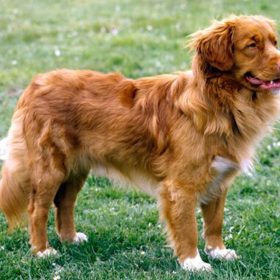 Nova Scotia Duck Tolling Retriever
Nova Scotia Duck Tolling Retriever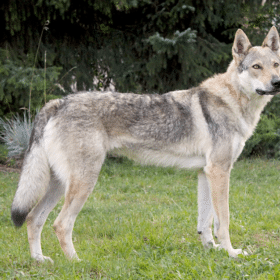 Czechoslovakian Wolfdog
Czechoslovakian Wolfdog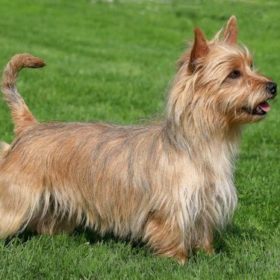 Australian Terrier
Australian Terrier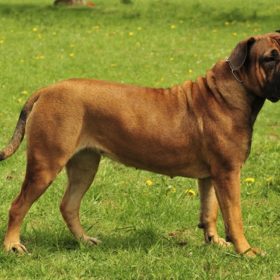 Boerboel
Boerboel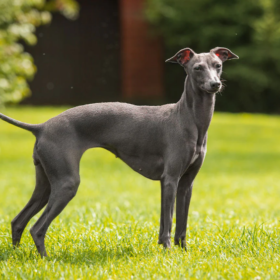 Italian Greyhound
Italian Greyhound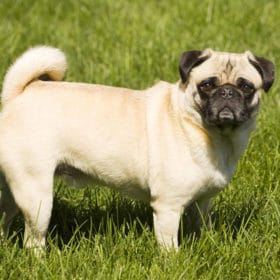 Pug
Pug